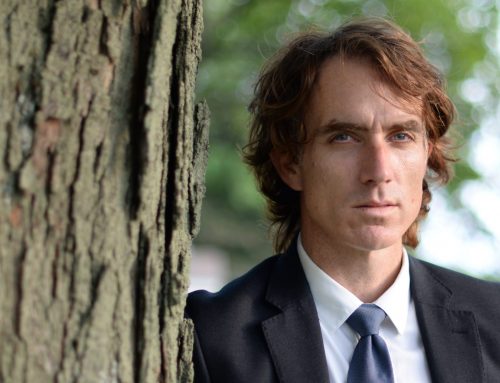Today represented the first opportunity at the Mass Casualty Commission for the non-Commission participants to be heard in a substantive manner. After four days of sitting and listening, the Commission finally allowed the participants to make submissions regarding any gaps they feel may be relevant with respect to the factual record, and any recommendations they may have for further witnesses and evidence that might fill in those gaps. This was their first real opportunity to openly challenge the Commission’s work, and they did so to various degrees.
Some of the tension that has been taking place (mainly) behind the scenes was exposed in the first presentation from Patterson Law lawyer Sandra McCulloch. In her submission on behalf of the many family members that firm represents, she said that the families were disappointed with the proposed procedure, that they expected they would be speaking about any relevant gaps the had identified in the evidence presented to date (as per Justice McDonald’s opening comments), but were told by Commission Counsel that they would be limited to proposing individual witnesses and giving reasons for those individual proposals.
Ms. McCulloch stated that the draft Foundational Documents that they had been provided by the Commission were significantly different from what was entered as exhibits this week. She said two of the three doubled in size while the other was reduced by half, and that they do not endorse these Documents as presented. At some stage (which they had hoped would be today) they want to be heard about their disputes with the narrative as presented so far. Chief Justice MacDonald said that time would come at the end of phase one of the MCC, which Ms. McCulloch correctly noted will mean the existing, apparently problematic, narrative will become unduly ‘settled’ within the minds of the public.
Some of this raises questions as to who is in charge on the Commission side. Commission lawyers seem to be trying to play the role of gatekeeper to a significant extent. Before any submissions were made, lead Commission counsel, Emily Hill stated that they feel the factual record is adequate, as is, and that no witnesses are required. With each witness that was proposed by the parties, Commission counsel provided short responses indicating their position that the particular witness was either not needed, or that the question of them appearing was premature, and should await further developments.
This later position extended to the most obvious of potential witnesses, Ms. Banfield. Ms. McCullough, Chester Law’s Joshua Bryson, Burchell MacDougall lawyer Linda Hupman, and MDW Law’s Tara Miller Q.C. each provided cogent reasons why Ms. Banfield must be called as a witness. For example, little is known about Ms. Banfield’s activities on the day of April 18, 2020, nor her movements or observations throughout the night when she says she was hiding in the woods. As has been noted by many, her reported appearance and injuries did not align with her account.
One of Ms. Banfield’s lawyers stated on the record that if she did not have to worry about her criminal charge, she would be fully cooperative with the Commission. That position may be tested before long, as her trial on the charge of supplying ammunition to the gunman starts late this month.
It may not be unreasonable to wait until her criminal trial is complete on April 5, 2022 to have her testify. Ms. Hill urged the Commissioners to wait until that happened before addressing the question, but in my view, there are enough known elements for the Commissioners to make a ruling now as to what they will do. The only real unknown is whether the trial will actually go ahead as scheduled. None of that should prevent the MCC from making a ruling now as to how they will approach the question.
The other major question of the day was whether any police officers below the rank of Staff Sergeant might be testifying. Nasha Nijhawan represents the National Police Federation, which is an organization representing all officers below the level of Staff Sergeant. That includes most of the officers involved in the MCC. Whether any officers would be testifying was the question that was to occupy most of the afternoon, but instead an issue arose regarding a potential expert report, and so the MCC adjourned until tomorrow to allow matters to proceed in a more logical order.
The issue is that the police want to have an expert qualified to speak to the trauma experienced by the officers who responded to the shootings, and it makes sense for the expert (if they are qualified) to give their opinion on the trauma that these officers would experience and the effects of testifying before the Commission hears about each officer individually. Unfortunately, the proposed expert (University of Regina professor, Nick Carleton) is only available tomorrow morning.
After the issue of whether Mr. Carleton will be considered an expert for the purposes of the MCC, the question of which officers might testify will be discussed, with submissions from counsel.
It is not known yet when the Commissioners might make decisions on these important matters. There are four days of further public proceedings scheduled for next week, and no witnesses listed on any daily agendas until the last week of March, so it is not clear when decisions on these matters will happen.
All of this will really challenge the MCC to define more specifically what they mean by ‘trauma-informed’. It seems clear that Commission counsel will be advising against any meaningful witnesses, and there is disagreement among the other participants, so it will be up to the Commissioners to make a ruling that gives the parties, and the public, some clarity. This will go a long way to determining whether the public will have faith in the process.
There will be submissions on the police witnesses tomorrow, and then the Commission will hopefully outline what we can expect for evidence next week.

